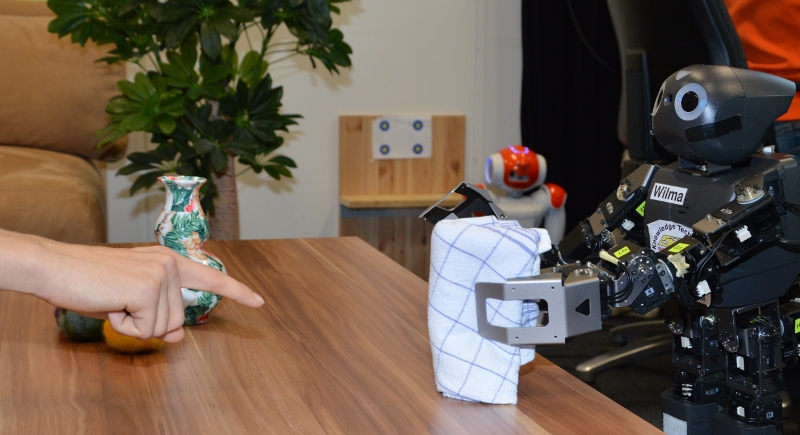TWIRL
|
Persons participating in the projectLeading Investigator: Prof. Dr. Stefan WermterAssociates: Francisco Cruz, Dr. Sven Magg, Dr. Cornelius Weber. |
 |
Description
 |
Nowadays, robotic research reaches progress in different fields using diverse learning algorithms. Varied tasks, such as navigation, grasping, vision,
speech recognition, pattern recognition among others, can be tackled and represented with different machine learning paradigms, like
supervised learning, unsupervised learning or reinforcement learning. Often these tasks are performed
in domestic scenarios with active human participation, in order to complete them collaboratively.
Reinforcement Learning (RL) uses sequential decisions, where an agent interacts with its environment. The environment is defined as all that is out of the agent's control and not as out of the agent's boundary, in a physic sense. The agent, in each state, selects an action to be performed, and then, it receives either a reward or a punishment. The agent, over time, aims at getting the highest reward, or as high as possible. Therefore the problem is reduced to finding an appropriate policy, which allows to find associated actions to states getting maximal future reward. Reinforcement Learning has been a very useful approach, but often works slowly, because of large-scale exploration. A variant of RL, that tries to improve speed of convergence, and that has been rarely used until now is Interactive Reinforcement Learning (IRL), that is, RL is supported by a human trainer who gives some directions on how to tackle the problem. |